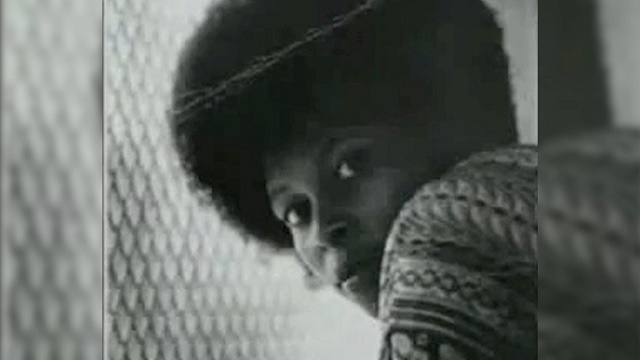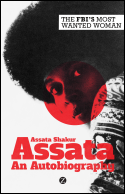Review | ‘Assata: An Autobiography’ by Assata Shakur Books
Books, New in Ceasefire - Posted on Sunday, September 28, 2014 19:31 - 0 Comments

The recent events in Ferguson, Missouri, have left black communities in the United States in a state of shock that has quickly given way to unsurprised disdain. Deaths in police custody are all too common, both in the US and here in the UK. However, it is the callousness of the murder of unarmed teenager Michael Brown, and the arrogance with which government officials responded to the situation, that reminded us of the persistent legacy of what many thought was a bygone era for black people in the United States.
Numerous stories in Assata Shakur’s recently updated autobiography recall similar patterns of events to the Ferguson case: unarmed black youths murdered by police, initial lies and character assassination, and then brutal violence dished out to the community who protest in the search of justice.
These stories are immensely valuable and superbly told; many of them would have otherwise been forgotten. Shakur is a revolutionary, currently living in Cuba, who, although prosecuted for an alleged murder in the 1970s, still has a $2million bounty on her head following her escape from prison.
As with any political struggle, what is often referred to as the ‘civil rights movement’ of the mid-twentieth century was a complex set of processes. Stories of the Black Panthers, NAACP and figureheads such as the Rev. Al Sharpton are common currency, but with little formal teaching of black history in this country one must go in search of the truth, and the best place to start is to hear (or read about) it directly.
The autobiographies of Elaine Brown and Huey Newton, among others, are of course seminal texts, but each has its flaws and shortcomings. While some autobiographies from this period read like an anthology of groups with similar sounding acronyms, Shakur’s does well to avoid this, keeping her story simple and engaging throughout.
The book has chapters alternating between Shakur’s early life, where she spent her teenage years navigating the streets of the Bronx, and the ongoing court case at the time of her writing. These are littered throughout with Shakur’s original poems, the stark reality of what it means to be a black female revolutionary becomes apparent.
There is no doubt that Assata Shakur deserves to be viewed alongside her more famous contemporaries; as the first woman to be placed on the FBI’s list of most wanted terrorists, she has an incredible history and is a committed revolutionary. However, it is the humility with which she talks that makes her story just that little bit more accessible. It feels as though it is being told by an elder, as opposed to an academic – she conveys and evokes all the emotions and mindsets of the time, allowing the reader to empathise with her struggle. That being said, her views on activism proclaim a different credo: ‘Revolutionary struggle is scientific rather than emotional’.
As with other similar autobiographies, the racism described is shocking, and Shakur paints in detail the systematic abuse and racism inflicted on her by the criminal justice system. Accused of various crimes, including murder, robbery and kidnapping, she was acquitted of three charges and had the case dismissed in another three, with only her last murder charge resulting in a conviction. This is surprising, in view of the endemic racism of the courts at the time, but Shakur explains in straightforward terms the techniques she and her lawyers used to attempt to ensure as fair a trial as possible.
What makes Assata Shakur’s autobiography so enjoyable is the honesty with which she explains the thought processes behind her decisions, for example her reasoning behind her non-committal to the Black Panthers – she felt their failure to separate above-ground political activity and underground military activity would be their downfall.
Unlike some of her contemporaries, she wasn’t a scholar or a professionalised analyst, yet her belief in people power led her to play a prominent role in the creation of the Black Liberation Army. This organisation took a stand for the freedom and justice of all people, focusing on the class struggle, and applying socialist theory in order to gain self-determination for Black people.
Shakur lived through terrible racism and police oppression in the USA, and now lives in exile in Cuba. In a brief postscript, she describes how differently race is perceived in Cuba in comparison to the US – thus adding a further, key dimension – and the everyday realities of what can often feel like the life of a historical figure.
 Shakur’s story is one of struggle, oppression and violence, but it is also much more than that. Sadly, the similarities that remain between present-day America and the America described by Shakur are too great. This autobiography brings into focus a piece of history that has helped shape race politics in the past decades, but it also serves as a startling reminder of what is still happening to black communities in the USA and beyond.
Shakur’s story is one of struggle, oppression and violence, but it is also much more than that. Sadly, the similarities that remain between present-day America and the America described by Shakur are too great. This autobiography brings into focus a piece of history that has helped shape race politics in the past decades, but it also serves as a startling reminder of what is still happening to black communities in the USA and beyond.
Assata: An Autobiography
Assata Shakur
July 2014
Paperback
416 pages
Zed Books


Leave a Reply